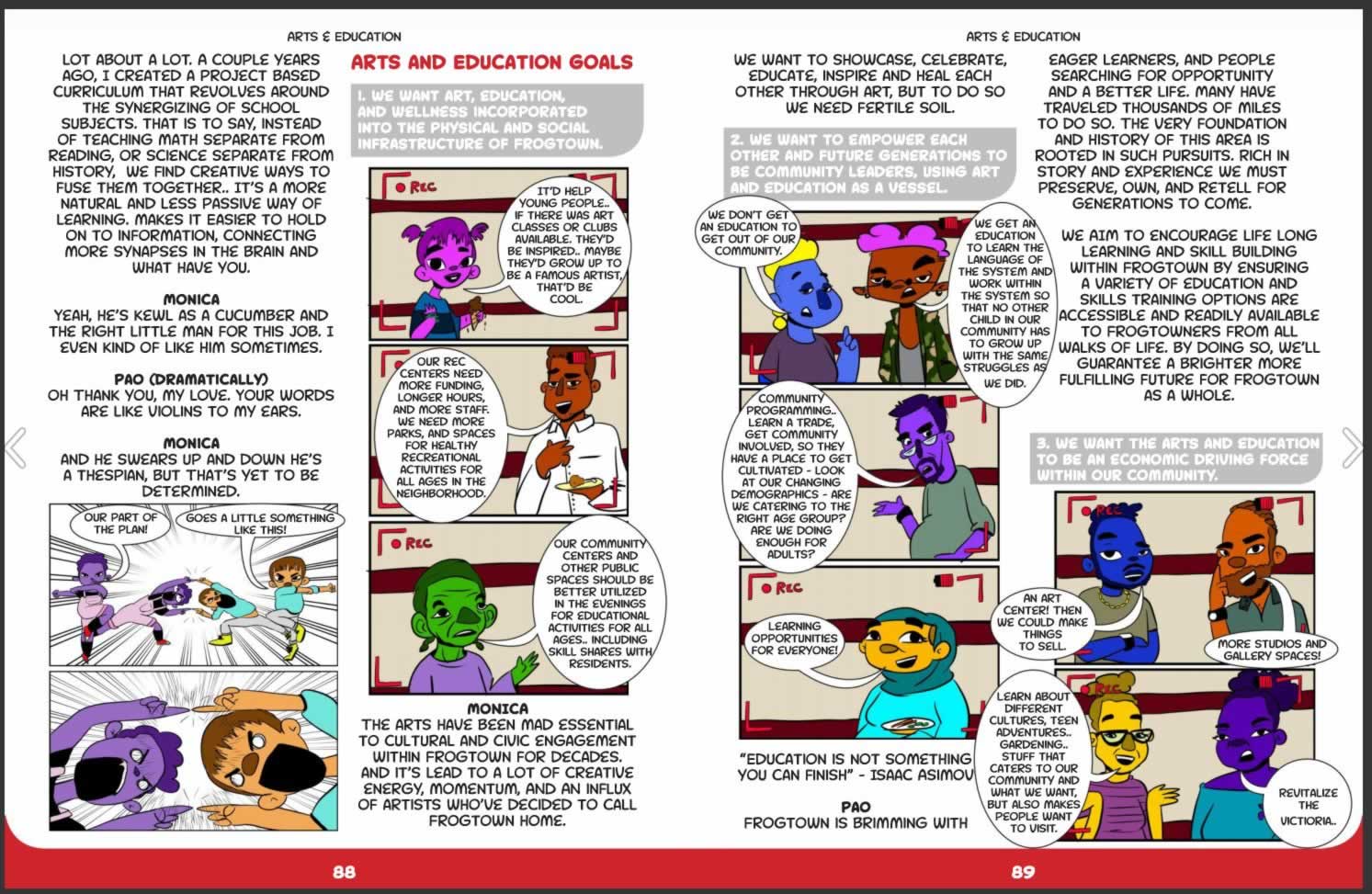After long correspondence (both in years and text length), I finally had an opportunity to meet with Carter Gillies over Thanksgiving weekend. On at least one occasion I dubbed Carter “potter-philosopher,” because he has studied and practiced both disciplines.
Carter has been a big proponent of measuring the value of the arts on their own terms rather than their instrumental value to stimulate economies, raise test scores, cure cancer and bring world peace.
We spoke and debated for many hours on these ideas. However, the really challenging conversation was the one I had with myself days later. It is a conversation that millions have had and never concluded satisfactorily.
Before I left Carter’s house, he took me back to his studio and told me to pick out whatever I wanted. I grabbed a bowl that caught my eye and Carter discussed why he liked the glaze he applied to it, pointing out the subtle golden flecks that dotted different places.
A few days later he wrote me thanking me for visiting and hoping I enjoyed eating out of the bowl.
I was mortified. How could I eat out of that bowl? It was a piece of art that represented the culmination of our relationship to this point. I had it prominently displayed on a table in front of my sofa.
But then when I thought about it, I have two mugs given to me by one of the directors of the art museum back where I previously lived in Ohio. I drink out of those all the time. In fact, I am drinking out of one of them right now, totally unplanned. To leave them in the cupboard and not use them would be a small betrayal of my relationship with her, implying they were not good enough to eat out of.
I have endowed both the bowl and mugs with value derived from my relationship with the makers. My conclusions about what the appropriate treatment of each are completely opposite and pretty illogical.
I am not even sure the question here is “what is art?”
Does mundane and common use diminish an object’s identity as art while preserving it in an untouched and stationary state except to dust it impart greater identity as an object d’art?
The makers are both in my mind and heart when I see and use these objects which is part of the value for me. Does sentimentality contribute or detract to the objective value of these items?
These are questions that can be addressed forever. But this also illustrates why it is so much easier to talk about the value of art in terms of instrumentality. Instrumental measures are things people can grasp on to much easier.
The big problem, however, as Carter points out is that we never really try to introduce the conversation with policy makers about why we value the arts. It can be really easy to talk in a passionate way about why you value the bowl on your coffee table and the mugs in your cupboard as well as the stuff hanging on your walls.
Yes, there is no facile way to empirically say the bowl is more valuable than the mug. There is a whole lot of complicated factors that contribute to record breaking auctions at Sotheby’s .
People value art and creativity in their lives for reasons that have nothing to do with what they can sell it for or enhancing their test scores.
The first step is opening your mouth to mention that the true value of a creative expression is divorced of these measures and potentially even divorced from another person’s perception of that creative expression.






Santa Cruz Shakespeare has several tiers of benefits for donors/members. Some, like season-announcement parties, are open to several tiers. Some,…